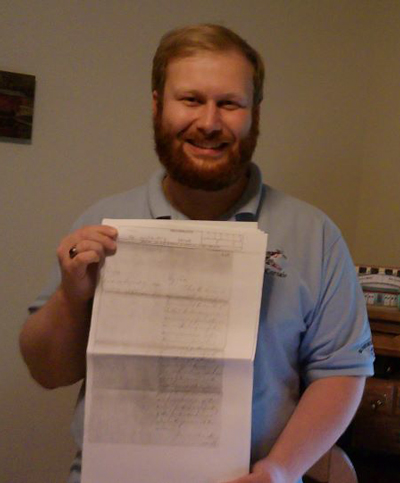June 14, 2021 - Thanks to dedicated Palo Alto volunteers, the park can now tell a little-known aspect of Great Britain’s involvement in final peace negotiations. During the War, British businesses in  Mexico suffered. Therefore, British officials entered secret negotiations with both Mexico and U.S. officials to bring the war to an end.
Mexico suffered. Therefore, British officials entered secret negotiations with both Mexico and U.S. officials to bring the war to an end.
Pictured: History Major Eric Hipkins Photo credit: NPS
In 2018, NPS volunteer David Davenport donated six boxes of U.S.-Mexican War related primary documents to Palo Alto. Davenport had traveled to London, poured through the British archives, and photocopied handwritten letters and reports about negotiations that ended the war.
Palo Alto was thrilled by the donation of the documents but didn’t have enough time to decipher reams of 19th century cursive penmanship. They turned to the U.S. State Department’s Virtual Student Federal Service (VSFS) internship program. VSFS recruits college student volunteers to work on government projects during the academic year.
Outreach coordinator Karen Weaver selected history majors Eric Hipkins of Mount St. Mary’s University and Elizabeth Pastor of the University of California, Irvine, to read and review copies of the handwritten historic documents to determine how the texts pertained to the War. Weaver provided each intern a National Archives booklet that taught archivists how to read handwritten documents.
Interns Hipkins and Pastor catalog their findings, documenting the date, author, subject matter, recipient, and synopses.
“I’ve been through 130-140 different documents,” Hipkins said, noting a single handwritten letter often exceeded 10 pages. “It has been amazing to see that many primary source documents written during one period of time. That has just blown me away.”
“Reading historic documents about the U.S.-Mexican War made the tension between these countries feel more concrete. Reading the letters of those who felt that anxiety first-hand made me realize how these are not just names in a book but real people undergoing great hardship,” Pastor said.
Source: NPS








